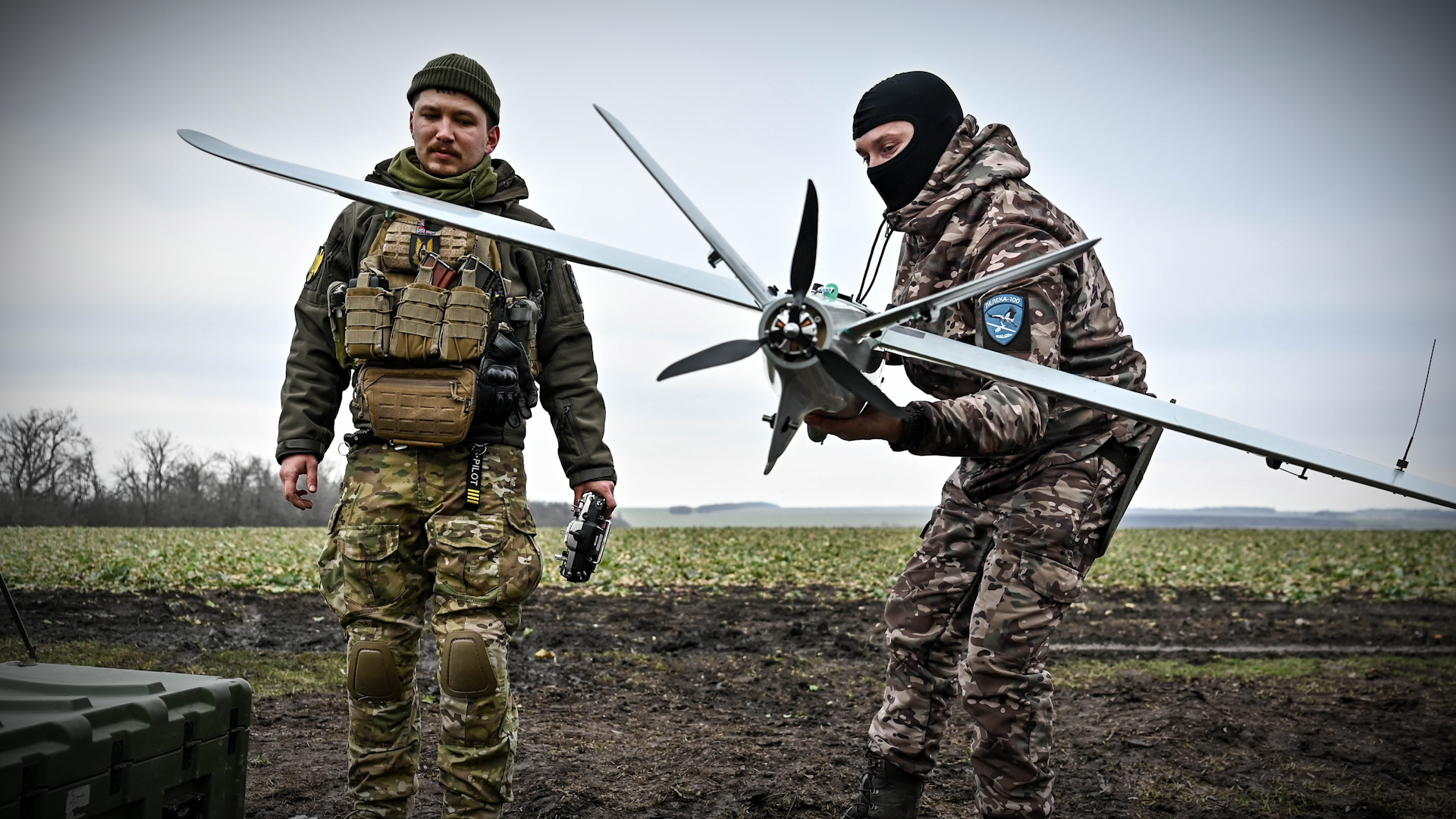
[LAUREN TAYLOR]
CIVILIAN, MILITARY AND TECHNOLOGY OFFICIALS FROM OVER 140 COUNTRIES MET IN VIENNA THIS WEEK TO HAMMER OUT HOW TO CONTROL THE INEVITABLE MERGER OF A-I AND MILITARY TECH.
ATTENDEES AT THIS FIRST EVER INTERNATIONAL CONFERENCE ON AUTONOMOUS WEAPONS SYSTEMS WERE WARNED THAT THE WORLD IS RUNNING OUT OF TIME TO GET A HANDLE ON AI’S INFLUENCE IN MODERN WARFARE.
ALEXANDER SCHALLENBERG
FEDERAL MINISTER FOR EUROPEAN AND INTERNATIONAL AFFAIRS | REPUBLIC OF AUSTRIA
“Autonomous weapons systems will soon fill the world’s battlefields. We already see this with AI-enabled drones and AI-based target selection. Technology is moving ahead with a racing speed, but politics are lagging behind.”
[LAUREN TAYLOR]
ARTIFICIAL INTELLIGENCE IS REVOLUTIONIZING MILITARY OPERATIONS, ENABLING DRONES TO STRIKE STRATEGIC TARGETS DEEP BEHIND ENEMY LINES WITH UNPRECEDENTED PRECISION.
HOWEVER, THE RAPID RISE IN LETHAL AUTONOMOUS WEAPONS HAS TRIGGERED A HEATED DEBATE AMONG EXPERTS AND POLICYMAKERS QUESTIONING THE ETHICS AND CONTROLLABILITY OF THIS TECHNOLOGY.
ALEXANDER SCHALLENBERG
FEDERAL MINISTER FOR EUROPEAN AND INTERNATIONAL AFFAIRS | REPUBLIC OF AUSTRIA
“This is, I believe, the Oppenheimer moment of our generation. We cannot let this moment pass without taking action. Now is the time to agree on international rules and norms to ensure human control.”
[LAUREN TAYLOR]
STATES HAVE INCREASINGLY ADOPTED WEAPONS WITH AUTONOMOUS CAPABILITIES — MORE RECENTLY ON THE BATTLEFIELDS IN UKRAINE, GAZA AND THE MIDDLE EAST.
US FORCES HAVE BEEN USING THIS TECH TO IMPROVE INTELLIGENCE GATHERING FROM DRONES AND SATELLITE IMAGERY TO IDENTIFY TARGETS IN THE MIDDLE EAST.
THE ARMED FORCES OF UKRAINE ARE NOW FLYING FIRST PERSON VIEW DRONES WITH AUTO-TARGETING CAPABILITIES. THIS VIDEO APPEARS TO SHOW AN FPV DRONE HITTING ITS TARGET EVEN AFTER LOSING ITS VIDEO FEED — INDICATING IT WAS GUIDED TO ITS TARGET WITH THE HELP OF ARTIFICIAL INTELLIGENCE.
JAAN TALLINN
CO-FOUNDER, CENTRE FOR THE STUDY OF EXISTENTIAL RISK
“At this point in time humans are adopting AI to delegate decisions through automated systems. Decisions that might be too fast for humans to make themselves, but there is a tradeoff. Whenever you opt for speed you give up control. Autonomous weapons that promise the advantage of speed do not allow for accountable human control and therefore risk destabilizing the very international order.”
[LAUREN TAYLOR]
ADVOCATES ARGUE THAT AI-ASSISTED WEAPONS COULD ENHANCE PRECISION IN TARGETING, POTENTIALLY REDUCING UNINTENDED CIVILIAN CASUALTIES AND MILITARY FATALITIES WHILE HELPING SMALLER OR VULNERABLE NATIONS DEFEND THEMSELVES.
CRITICS, HOWEVER, WARN OF THE POTENTIAL FOR CATASTROPHIC ERRORS AND RAISE SERIOUS ETHICAL CONCERNS ABOUT DELEGATING CRITICAL COMBAT DECISIONS TO ALGORITHMS.
JAAN TALLINN
CO-FOUNDER, CENTRE FOR THE STUDY OF EXISTENTIAL RISK
“Accidental errors caused by autonomous weapons have the potential to spark the kinds of wars that should never be waged. No autonomous weapon should be designed or used to target a human, nor should it be used to distinguish between one human and another.”
[LAUREN TAYLOR]
IN THE SPRING OF 2020, AN AUTONOMOUS DRONE STRIKE OCCURRED IN LIBYA. ACCORDING TO A U-N REPORT, THIS STRIKE INVOLVED MULTIPLE 15-POUND TURKISH-MADE DRONES, WHICH OPERATED WITHOUT HUMAN INTERVENTION TO TARGET FORCES OF THE LIBYAN NATIONAL ARMY.
THE U-N FOUND THE DRONE WAS EQUIPPED WITH ADVANCED AUTONOMOUS TARGETING, CAPABLE OF SWARM OPERATION, RESISTANT TO GPS AND RADIO JAMMING, AND INCLUDED FACIAL RECOGNITION SOFTWARE TO IDENTIFY HUMAN TARGETS.
ALEXANDER SCHALLENBERG
FEDERAL MINISTER FOR EUROPEAN AND INTERNATIONAL AFFAIRS | REPUBLIC OF AUSTRIA
“We are faced with profound legal, ethical and security questions. How to prevent seeding life and death decisions to machines. How to deal with algorithms prone to mistakes and bias. How to stop an AI-driven arms race and to keep the technology out of the hands of terrorists.”
[LAUREN TAYLOR]
IN 2023, AUSTRIA SPEARHEADED THE FIRST U-N RESOLUTION ON AUTONOMOUS WEAPON SYSTEMS. THE UNITED NATIONS SECRETARY-GENERAL RECOMMENDED THAT BY 2026, STATES SHOULD AGREE ON A LEGALLY BINDING PLAN TO BAN LETHAL AUTONOMOUS WEAPON SYSTEMS OPERATING WITHOUT HUMAN CONTROL OR OVERSIGHT.







